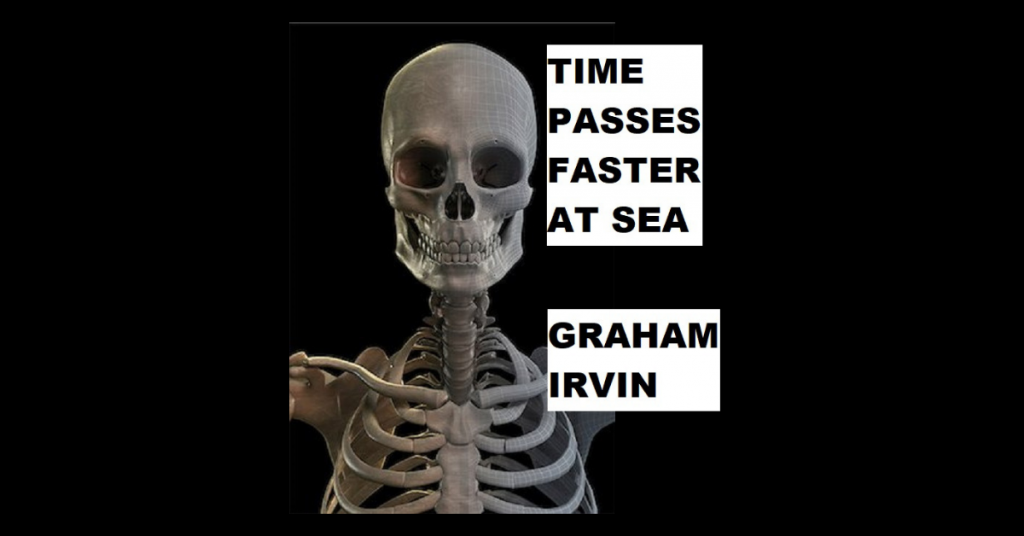In Korea everyone called my grandfather Pete because they didn’t know he was going to be a grandfather some day.
When my parents got married Pete punched me in the face. He wanted me to grow up tough.
My mom won’t forget the stories Pete told her about working radar in the belly of a battleship, seeing big green blips of terror appear and disappear. He told her they were bigger than the ship, by two or three times.
My mom says, ‘What could that have been?’
When there was a big green blip approaching on the radar Pete thought, ‘I’m dead.’ And when that big green blip disappeared Pete thought, ‘I’m not dead.’
When Pete was my grandfather he told me to never grab myself when I jump off a battleship. It’s the one sure thing he learned in the Navy.
He said, ‘It will rip your stuff right off.’
He asked me to paint his red weathervane like a confederate flag. I said, ‘I don’t feel like it.’ Then he died.
Pete’s battleship crossed the international date line in the Pacific Ocean every few weeks. He wrote in his diary, ‘There is no tomorrow.’
He wrote a poem about being the world’s loneliest soldier.
He wrote his girl Jen and asked if she was seeing any of the neighborhood men when he was out of town.
Jen was what people called my grandmother before they knew she was going to be a grandmother.
When Pete was in Japan he met a woman called Mitchi.
When he was in San Francisco he met a woman called Ilene.
When he was docked in Alaska he saw a seal carcass with blubber that moved like hair.
He wrote a story longhand about a girl who put a garden hose inside of herself before having sex with her brother. Then the girl had sex with her aunt. And then her brother and aunt at the same time. Pete bought a manual Underwood to type a second draft.
My grandfather lived in the hospital with cancer for a week. I sat in the backseat of my mom’s car and listened to Death Cab for Cutie on a portable CD player on the ride there.
When he died my grandmother gave me his old guitar. I learned to play Title and Registration and then gave up.
Pete played mandolin in a gospel band with his brother and sister. They even recorded a song for the radio once.
Then Pete joined the Navy.
Pete wrote in his diary, ‘Some days are Monday and other days are Tuesday.’
And, ‘Everything written is written in blood.’
When Marines from Busen left bags around the ship, Pete stole their guns and boots and sent them to his brother.
After kissing Ilene in San Francisco, Pete called Jen and asked, ‘Have you been faithful?’
And Jen said, ‘Yes.’
The next time he could afford a train to China Grove, they got married.
Pete wrote in his diary about their wedding night, ‘Four times.’
In Florida Pete and Jen took a canoe through the everglades. Alligators rocked their boat.
They had a kid and had a kid and had a kid and had a kid. One of them found Pete’s diary in a barn and wrote their name on a page that said, ‘Time passes faster at sea.’
Pete hid the diary until he died. His stomach turned into a garbage disposal and took him with it.
It was quick.
Jen lived forgetting until she forgot the final thing.
It was two days after my birthday. We celebrated with pulled pork and potato salad.
No one called her Jen.
No one cried about it.

